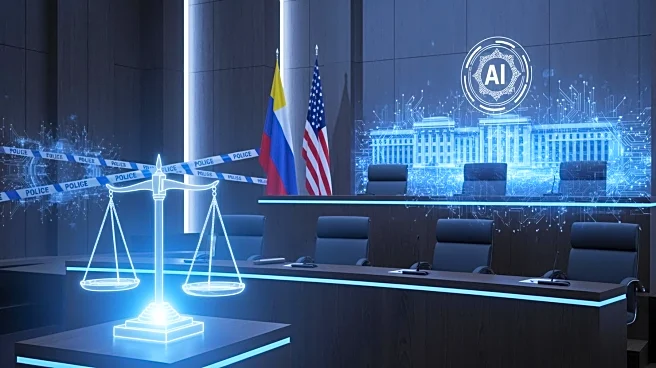Rapid Read • 6 min read
Critical race theory (CRT), an academic concept over 40 years old, is under scrutiny as state legislatures debate its place in K-12 education. The theory posits that race is a social construct and that racism is embedded in legal systems. This has led to a surge in legislative efforts to ban CRT from classrooms, with critics arguing it promotes divisive ideologies. Proponents, however, see it as a vital tool for understanding systemic racism. The debate has intensified public awareness of racial issues, though consensus on government intervention remains elusive.
AD
The controversy over CRT is pivotal in shaping educational policies and public discourse on race in America. The legislative push against CRT reflects broader societal tensions about how race and history should be taught. This could impact educational practices, potentially limiting discussions on racial inequality and diversity. The debate also underscores the political polarization in the U.S., with implications for how educational content is regulated and the autonomy of educators in curriculum design.
As more states consider legislation against CRT, the educational sector may face increased scrutiny and potential legal challenges. Educators and school administrators will need to navigate these changes while addressing community concerns. The ongoing debate may also influence future educational reforms and the development of inclusive curricula. Stakeholders, including civil rights groups and educational organizations, are likely to play a significant role in shaping the discourse and policy outcomes.
AD
More Stories You Might Enjoy










